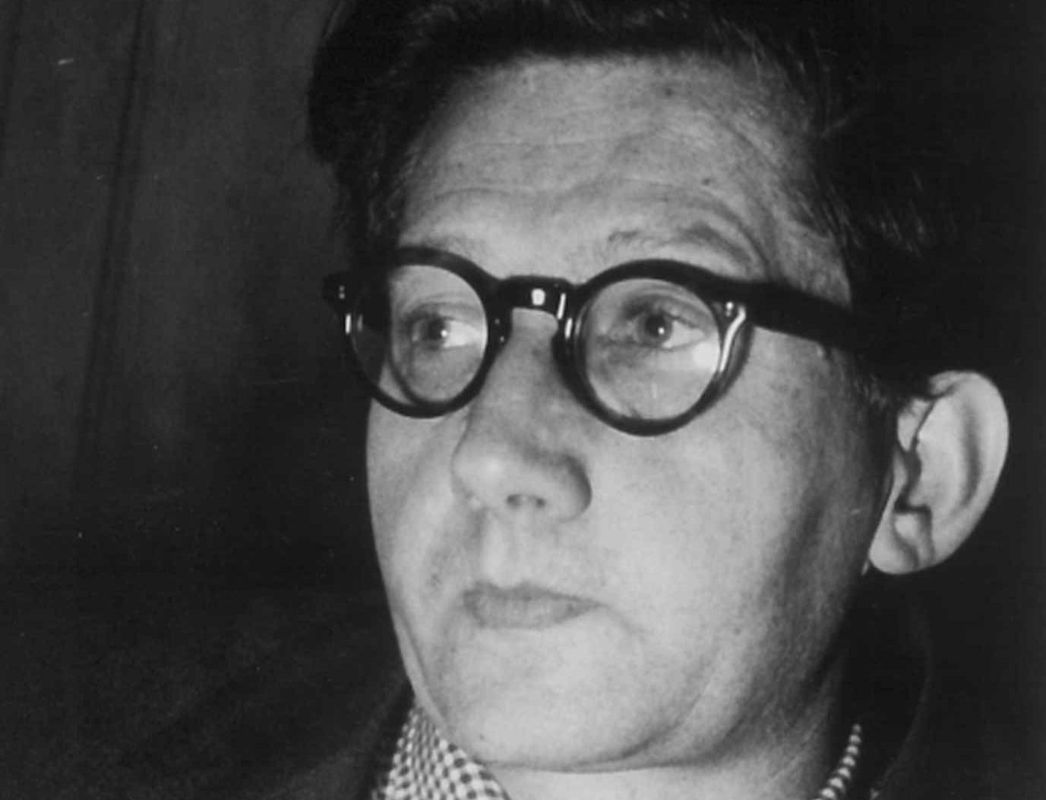Transcript
Narrator On the afternoon of the 11th of April 1945 the International Camp Committee met. It was their first meeting right after the liberation of the camp. One of the members was the Croatian communist Rudi Supek. Enormous tasks lay ahead of him and his comrades, representing eleven countries: The American tanks, which had put the SS to flight just hours before, had now moved on. In the camp there were still 21,000 inmates, many of whom were starving, sick, and in the Little Camp in particular, many were still dying. And so the main tasks were to care for those in need, to ward off the danger of epidemic and to maintain order.
Like the other representatives, Rudi Supek had been active in the underground movement at the camp. He had, for example, given secret lectures on Marxism. He was a member of the illegal Yugoslavian committee, whose task it was to represent the Yugoslavian inmates in the camp’s resistance organization. This was not easy as the inmate badge for Yugoslavian, which featured a “J”, covered a whole range of very different people: There were a majority of Slovenians, some Croats and Serbs as well as some Montenegrins and Muslim Bosnians. Yet here too, the communist influence predominated despite the linguistic, cultural and religious diversity.
The SS had only started to take large numbers of prisoners from the Balkans to Buchenwald in the autumn of 1943. There were almost 4,000 of them, though most were transferred to subcamps. In the summer of 1944, there were approximately 900 Yugoslavs in the parent camp.
Rudi Supek had come to Buchenwald from France. The son of a chimney sweep, Supek had first studied philosophy, cultural history and art history in Zagreb. In 1939 he had left for Paris to study psychology. In France he had joined the Communist Party. Following occupation by the German forces, he had helped mobilize Yugoslavian immigrants for the resistance. The French police arrested Supek in 1942 and later handed him over to the Gestapo. Via Compiègne, a transit camp, he had been deported to Buchenwald in 1944.
After the camp was liberated, Supek remained in Germany until September 1945; he worked on the camp newspaper Naš glas (Our Voice). Then he continued his studies in France, receiving his PhD from the Sorbonne in 1952. After this he returned to Zagreb and taught psychology. Later he was employed at the institute for social sciences in Belgrade, and beginning in 1963, he was a professor of sociology at the University of Zagreb.
Supek became internationally renowned above all as a cofounder of the summer schools on the island of Korčula, which started in 1963. Many prominent social scientists and humanities scholars from western Europe and the USA took part in these annual conferences, which were dedicated to an undogmatic Marxism. In 1975 the Yugoslavian government banned not only the summer school but also the affiliated journal Praxis. Four years later, following conflict with government agencies about university politics, Rudi Supek was forced into early retirement. In the following years, he remained active in the scientific community and continued to work toward a humanist and democratic socialism.


